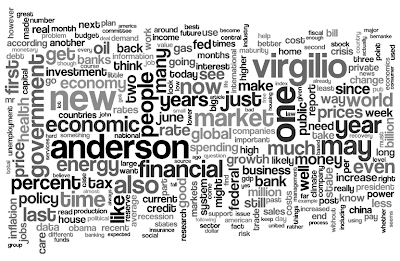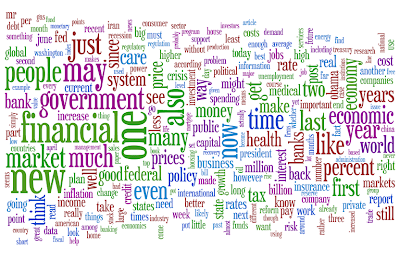Paul Krugman versus the stimulus

Many of you will have noticed Paul Krugman's continuing demands for a bigger fiscal stimulus - he thinks it should be around double the size proposed by the administration. If nothing else, we have to give him credit for being consistent, right? Well...maybe not. You see, I came across an old article where he was, as usual, insisting that the stimulus should be doubled...but only to $600 billion! A double-take. Could it ever be true that the administration was proposing only a $300 billion stimulus? Yes it could - in fact in the early days of the election campaign Obama's proposal was for a stimulus of $60 billion . No wonder Paul originally supported Hillary. I thought it would be interesting to run a comparison of Paul Krugman's desired stimulus versus the stimulus proposed (and eventually passed) by the Obama administration. Here it is (click on the graph for a larger version). The red line is the administration's efforts and the blue is what Paul wants: The red lin



